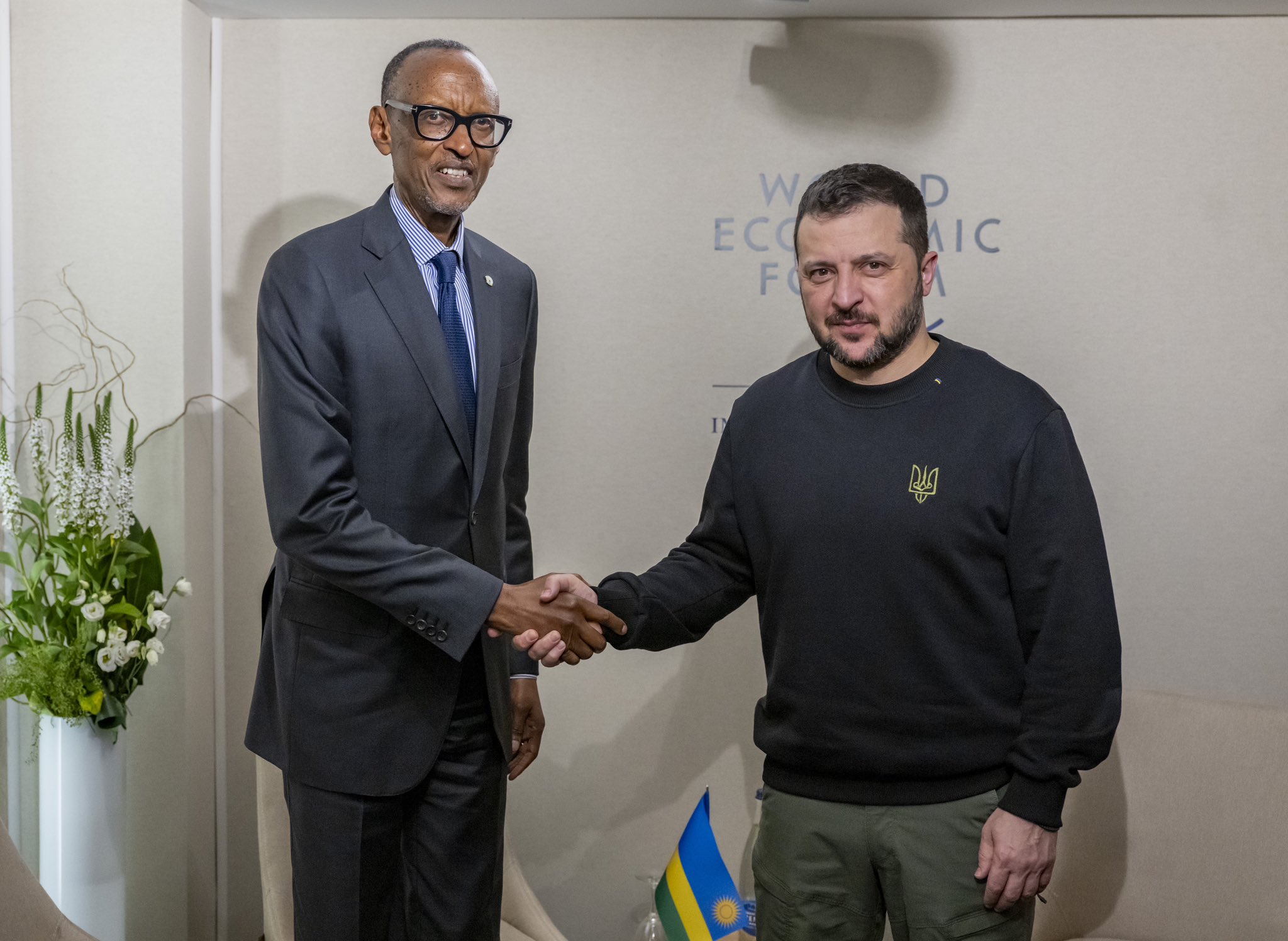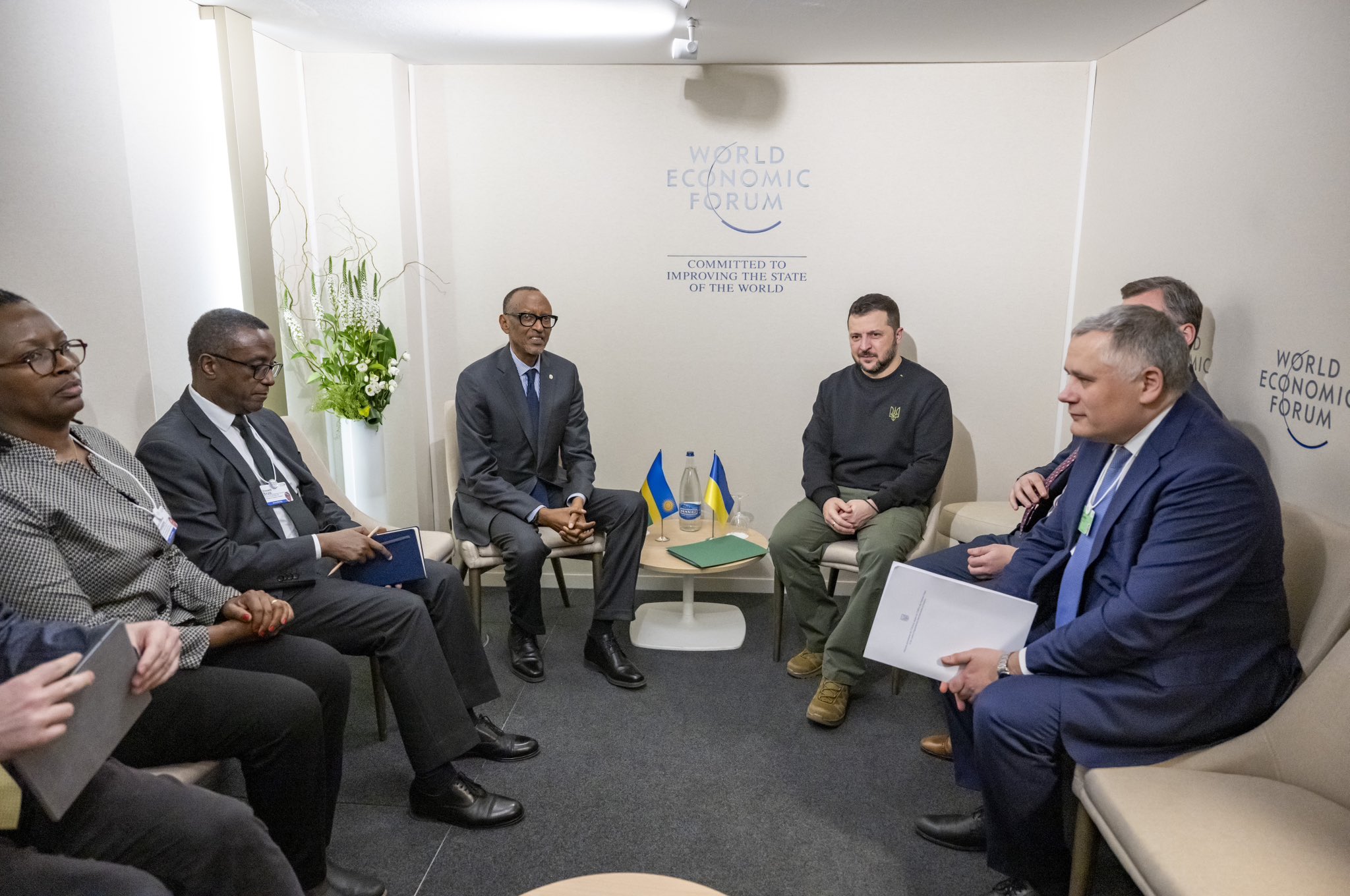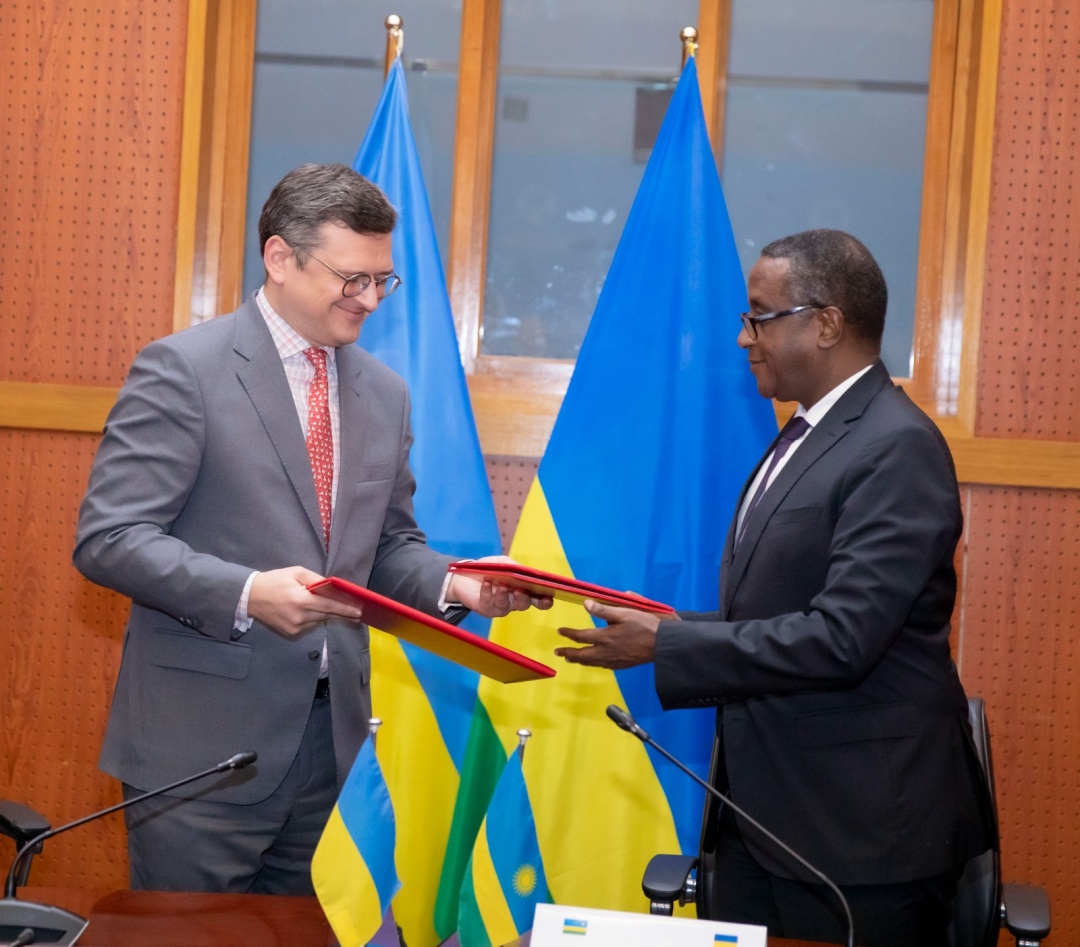In an exclusive interview with the Ambassador Extraordinary and Plenipotentiary of Ukraine to the Republic of Rwanda, H.E. Andrii Pravednyk, Taarifa’s Chief Editor, Magnus Mazimpaka, explores critical insights into Ukraine’s stance on the ongoing conflict with Russia and its diplomatic engagements with Rwanda and Africa emerge.
Against the backdrop of the two-year anniversary of Russia’s aggression, Ambassador Pravednyk elucidates on the motivations behind the conflict, Ukraine’s pursuit of peace, and the significance of Rwanda’s solidarity. Ambassador Pravednyk sheds light on Ukraine’s strategic initiatives, including the recent opening of the Embassy of Ukraine in Rwanda, and outlines prospects for bilateral cooperation in trade, investment, and beyond.
This interview provides a comprehensive understanding of Ukraine’s aspirations for peace, international cooperation, and strengthened ties with Rwanda and Africa at large.
Excerpts below:
Your Excellency, February 24 marked two years since the start of Russia’s full-scale war against Ukraine. How would you explain to our readers the reasons for this brutal war unleashed by Russia against Ukraine?
Two years ago, on February 24, 2022, the president of the Russian Federation announced the beginning of the so-called “special military operation” under the pretext of carrying out the so-called “demilitarization and denazification of Ukraine”. After that, around four o’clock in the morning, missile strikes were carried out throughout the territory of Ukraine, and Russian troops launched a large-scale invasion of the territory of our state, entering from the side of the Russian Federation, Belarus and the temporarily occupied Crimean Peninsula. But active resistance from the Armed Forces of Ukraine, territorial defense forces and Ukrainian citizens caused significant losses to the Russian occupiers and disrupted the Kremlin’s plans to carry out a “blitzkrieg”, capture Kyiv and key cities and change power in Ukraine.
For sure, Ukrainians never desired the ongoing war. The unprovoked and criminal Russian aggression is a reflection of the dark forces of imperialism, chauvinism and colonialism.
Since the first day of the invasion, Russia has been violating the rules of war and international law and committing war crimes and crimes against humanity on a massive scale, killing civilians, destroying infrastructure and deporting the population.
Russia has temporarily seized and holds about 20% of the territory of Ukraine, paying a huge price for it. The enemy’s losses in the war are 7-8 times higher than the Ukrainian ones. Russia sacrificed an average of 400 soldiers in exchange for 1 km² of land.
In revenge for its military losses on the battlefield, Russia continues terrorising Ukrainian civilians by attacking critical infrastructure and residential areas with missiles, guided aerial bombs and attack drones resulting in significant casualties and destruction. Towns such as Bakhmut, Avdiivka, Maryinka and Vuhledar stand as remnants of the past, inhabitable no more and virtually erased. Claiming the false slogans, the Russian military destroyed the habitability, plundered the industrial potential and brought devastation to the region. More than two million internally displaced persons from the Donetsk region and 4.9 million people from all over the country are officially registered in Ukraine alone. If it hadn’t been for Moscow’s decisions to start this aggression and this terror, thousands of people would be alive.
What goals is Ukraine trying to achieve in the war? And how does Ukraine see the world after it?
These goals and this vision are very clear and understandable for every Ukrainian. They have been repeatedly expressed by the Ukrainian leadership. The war must end with a just and stable peace, which is possible only after Ukraine’s complete liberation of all occupied territories, the restoration of sovereignty and territorial integrity in the internationally recognized borders, including the parts of Donetsk and Luhansk regions, as well as the Autonomous Republic of Crimea and the city of Sevastopol, occupied in 2014.
Russia definitely must pay compensation for the mass destruction caused to Ukraine as well as war criminals must be held accountable.
Ukraine should receive clear and effective international security guarantees. Russia must be deprived of the capacity for armed aggression in the future.
We will create conditions for the voluntary return of refugees and internally displaced persons to the territory from which they were forced to leave due to Russia’s military aggression.
After the war, Ukraine, having gone through reforms, will join the European and Euro-Atlantic institutions as a full member, which is fixed in the Constitution of Ukraine.
Given Ukraine’s intention to widen its diplomatic footprint in Africa, what role does Rwanda play in Ukraine’s broader strategy for engagement with the continent?
Rwanda is among those African countries that have consistently supported the territorial integrity and sovereignty of Ukraine during two years of full-scale Russian invasion. Rwanda’s solidarity with Ukraine in these extremely difficult times for us is hard to overestimate. We highly appreciate Rwanda’s support, in particular, its voting in favour of key UN resolutions on the full-scale Russian aggression against Ukraine.
We are grateful to Rwanda for the first participation of its representative in the fourth meeting of the National Security and Foreign Policy Advisers in Davos. We look forward to Rwanda’s continued active participation in the implementation of the Ukrainian Peace Formula aimed at restoring world order and respect for the Purposes and Principles of the UN Charter. We also count on Rwanda’s support for the idea of holding the first Global Peace Summit.
Tell us a little more about Ukraine’s Peace Formula. And how could Rwanda contribute to the implementation of it?
The Peace Formula remains the only realistic and comprehensive plan to restore Ukraine’s territorial integrity and to guarantee security and justice for the entire international community. Its 10 points were reflected in the UN GA Resolution «UN Charter principles underlying a comprehensive, just and lasting peace in Ukraine» adopted on 23 February 2023 by 141 votes, including Rwanda’s vote.
The Peace Formula is gradually gaining the support of the world. It is universal and can create a basis not only to end Russia’s war of aggression against Ukraine, but also to end other armed conflicts on the planet and overcome global problems, including those on the African continent.
Any country, except for the aggressor state, can join the process of implementation of the Peace Formula. To implement it, Ukraine has organized consultations with ambassadors accredited to Ukraine, devoted to a detailed consideration of each point of the Formula. To prepare draft framework documents for the implementation of the peace plan it was decided to create working groups on each point of the Peace Formula. They aim to provide detailed steps to restore a comprehensive, just and lasting peace in Ukraine and to create effective tools that can be used in any potential armed conflict or war.
Ukraine has initiated meetings of national security and foreign policy advisors to find the way forward for the implementation of the Peace Formula. Four meetings within the framework of this format took place for discussion of the specific points of the Peace Formula and its implementation. The last meeting was held in Davos on 14 January. Representatives of over 80 countries, including Rwanda, and international organisations participated in the meeting, testifying to the rapidly growing interest in Ukraine’s Peace Formula. The meeting was focused on discussing the specific points of the Peace Formula (withdrawal of Russian troops and cessation of hostilities; restoration of justice; environmental safety; preventing escalation and repetition of aggression; confirmation of the end of the war). In addition, two special sessions were held on food security and humanitarian aspects of the war.
Presidents of Ukraine and Switzerland agreed to launch the work on organizing the Global Peace summit of state and government leaders in Switzerland. The Summit should give rise to the set of thematic meetings in different countries at the ministerial, parliamentary, expert and other levels to prepare detailed proposals for the leaders. This political process is aimed to develop and agree on a single joint peace plan.
Of course, It is preferable that the maximum number of countries from different parts of the world, including countries of Africa, be involved in the summit which could become the foundation of the world’s security architecture in the future.
Can you provide some background information on the recent opening of the Embassy of Ukraine in Rwanda? How do you envision the relationship between Ukraine and Rwanda evolving with the establishment of the Embassy?
We understand the growing role and importance of the African continent, and therefore we are expanding Ukraine’s diplomatic presence in Africa. In addition to Rwanda, the new embassy has already has already started its operations in Ghana. This year, we will open several other diplomatic missions, in particular, in Botswana, Côte d’Ivoire, Mozambique and other countries.
Recently, there has been a positive trend in Ukrainian-Rwandan bilateral relations. Several high-level contacts have taken place. First of all, we are talking about the first meeting between the Presidents of Ukraine and Rwanda, which took place on 16 January 2024, at the World Economic Forum in Davos. This meeting gave impetus to intensifying cooperation between our countries.
Another important event was the first visit of the Minister of Foreign Affairs of Ukraine Dmytro Kuleba to Kigali in May 2023.
Undoubtedly, the opening of the Embassy of Ukraine in Rwanda, which began its work on December 22, 2023, will also contribute to strengthening bilateral relations between our states.
Can you elaborate on Ukraine’s plans to boost its global reach through trade and investment? What opportunities do you see for collaboration between Ukraine and Rwanda in these areas?
Rwanda is one of Ukraine’s promising trade and economic partners in the East African region. In 9 months of 2023, trade turnover between our countries totalled US$ 1.657 billion. Ukraine exported to Rwanda sunflower oil, malt beer, ethyl alcohol, air conditioning and temperature control equipment, and aircraft parts. The main imports from Rwanda to Ukraine were coffee, tea, unprocessed tin, and electronic integrated circuits.
Undoubtedly, there is significant potential for the development of our relations in the trade and economic sphere. We have also good prospects for developing cooperation in the field of digitalisation and information technology. In the education sector, a promising area is the training of highly qualified personnel for the Rwandan public sector.
What message would you like to convey to the people of Rwanda regarding the opening of the Ukrainian Embassy and the potential for strengthened ties between our two countries?
President of Ukraine Volodymyr Zelenskyy, trying to explain the essence of Russia’s full-scale war of aggression against Ukraine, said that war is not between nations or ideologies but represents a struggle between two sides of the human soul – one that respects life and sees others as equals, and other that only respects itself, taking others as threats and seeks dominance, showing contempt for life.
The Ukrainian and Rwandan peoples have gone through great trials in the past. But they remained on the light side of the human soul which respects life and sees others as equals. It brings them closer together. And this is a reliable basis for our mutually beneficial cooperation.
The Embassy will promote the development of not only bilateral relations between our two states, but also people-to-people contacts. I am deeply convinced that Ukrainians and Rwandans will always be able to understand each other and our task as diplomats is to promote their understanding as much as possible. 




















